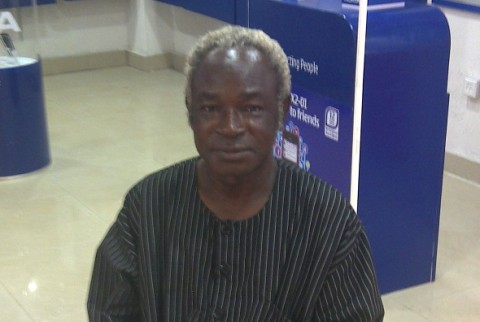(OPINION) – The Taliban, the Boko Haram and the Bandits
African News, Articles/Opinion, Featured, Featured Contributors/Columnists, Latest Headlines Sunday, August 29th, 2021
By Prof. R A. Ipinyomi, Ilorin, Nigeria
(AFRICAN EXAMINER) – The Taliban, currently capturing global headline news, originated from a group of conservative seminary students in Afghanistan in the mid-1990s following the collapse of Afghanistan’s communist regime propped by the Soviet Union at the time. Taliban took its name from its membership consisting of students trained in Islamic religious schools that was established for Afghan refugees by Saudi Arabia in the 1980s in northern Pakistan to teach the Sunni Islamic theology. Initially in 1994, the Taliban emerged as a force for social order, giving on-the-spot justice, in the southern Afghan province of Kandahar.
They quickly subdued the local warlords who controlled the south of the country and subsequently gained effective control of the country by the end of 1996. There are a few major ethnic groups in Afghanistan, including the Hazara, Pashtun, Tajik, Uzbek and others. Internal resistance to the Taliban has continued to date, particularly among non-Pashtun ethnic groups. They probably see the power of the predominantly Pashtun Taliban as a continuation of the traditional Pashtun domination over the country.
The list of “wrong doings” of the Taliban include their near-total exclusion of women from public life including employment and education, the systematic destruction of non-Islamic artistic relics and the implementation of harsh criminal punishments. Consequently the regime suffered isolation from the global community. Only the Saudi Arabia, Pakistan and the United Arab Emirates had ever recognized them. The biggest of their sins, as far as the western super powers were concerned, was probably that the Taliban allowed Afghanistan to be a haven for Islamic militants from throughout the world, including Osama bin Laden the leader of al-Qaeda. The Taliban’s refusal to extradite bin Laden to the United States following the attacks on the World Trade Centre on September 11, 2001, prompted a military confrontation with the United States. The Taliban was subsequently driven from power by the western allied super powers.
The recent escalated turmoil in Afghanistan is compounded by the ongoing covid-19 global pandemic, the fact that the Taliban have been only insurgents for the last 20 years and not administrators, the exodus brain-drain that is ongoing with high risk to destroy the economy, education, health and every other fabric of society, and so on. In particular the global economy 20 years ago is quite different from the general declining current situations. Hence both those fleeing Afghanistan and those unable to leave will face challenges unprecedented. Nevertheless the long dream of every Afghan should remain when to eventually return home in the near future.
The chaos in that region is not just at the airports but everywhere, including internal disagreement and differences between the hardliners in Taliban and the more extreme group in ISIS-K who think that the Taliban have been too soft of the withdrawing western super powers. If there were good advisers amongst the insurgents they would have taken the negotiation initiated by President Trump, despite that Trump had been only a transactional individual. A table negotiation would have created a win-win situation rather than this everyone-a-loser unfolding scenario. The seeming gain of the Taliban will soon prove only very short-lived, especially with the interfering activities of ISIS-K and other extreme hardliners.
Initially the first group of Boko Haram leadership in Nigeria aimed to correct social order in their-own-wisdom and motivated by Islamic Sharia Law, be it according to their interpretation. Unfortunately in recent times the insurgent fighters particularly target women and girls with kidnaping and rape. They had focused mainly on Christian groups, killing them and destroying Church properties. It is also reported that Boko Haram fighters killed people trying to flee and looted livestock, farm crops, money, and other valuables, which is irreligious.
There is repeated displacement of people in affected communities. Whilst historically Afghanistan is a den of ruin for empires like the British in 1941, the USSR in 1996 and now the USA and her allies in 2021. Boko Haram has not achieved beyond raising a flag in a few local Government Areas, flags that had been quickly put down by Nigeria Armed Forces or even the local communities. The similarities however exist because it is suspected that Boko Haram took their motivational script either from the Taliban or from a more extreme group like ISIS or al-Qaeda; but only able to kill, destroy or cause chaos in their own communities and never able to govern. Boko Haram lacks originality, objectives and purpose. Many Nigerians believe rightly or wrongly that Boko Haram enjoys domestic political support from within, alleging that local politicians using the insurgents as political porn to hunt oppositions. There is no visible feature for Boko Haram or for the Bandits unless they are ready to relearn their lessons on national revolution and fighting to improve the conditions of the ordinary person living poorly on the street.
Prof. R A. Ipinyomi, writes from University of Ilorin, Nigeria
Related Posts
Short URL: https://www.africanexaminer.com/?p=67238






















